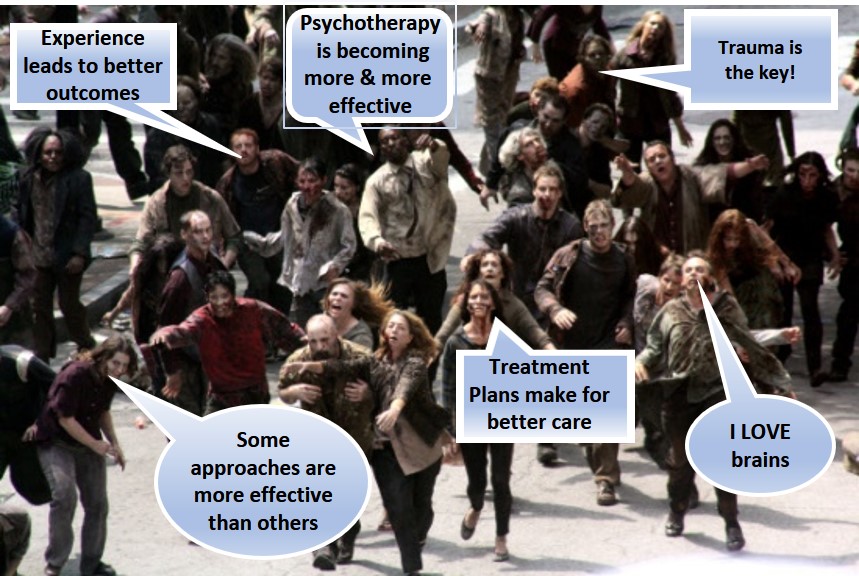 As a mental health professional, how are you approaching the New Year? Are you filled with hope for our field? Suffering a twinge (or more) of despair? Maybe you’re in reflective mood, longing for the ‘good ole days’? Or is the difference between December 31st and January 1st just like any other twenty four hour period?
As a mental health professional, how are you approaching the New Year? Are you filled with hope for our field? Suffering a twinge (or more) of despair? Maybe you’re in reflective mood, longing for the ‘good ole days’? Or is the difference between December 31st and January 1st just like any other twenty four hour period?
While catching up on reading over the Holidays, I came across a word that captured my experience. I’d never seen it before. Anticipointment. Online sources define it as, “The state of mind resulting from anticipating and then being disappointed when expectations are not met.” Truth is, I recognize now I’ve often experienced this, but mistaken it for nostalgia. I t’s not.
So what about you? On one hand, we do have good reason to be hopeful. After all, decades of evidence provide overwhelming proof of the effectiveness of psychotherapy. On the other hand, the same research shows our outcomes have not improved in more than 40 years. Returning to the positive side, researchers have now identified two specific practices — routine outcome monitoring and deliberate practice — that enable clinicians to accomplish something never before recorded in history the history of the field; namely, steadily improve their effectiveness from year to year. On the negative side, the field –researchers, clinicians, payers, and policy makers alike — continues to be strongly attracted to treatment models, I’d say fatally so. Crossing the term, “cognitive behavioral therapy” (CBT) with “randomized controlled trial” (RCT) on Google Scholar results in 1,930,000 hits! In case you glossed over the figure, that’s one million, nine hundred thirty thousand — and that’s just one method out of hundreds. By contrast, a similar search of “tetanus vaccine,” produces slightly more than 18,000 results. I ask, does our field really need to spend precious resources on another study of CBT? It’s discouraging. More broadly, given the clear and overwhelming evidence of equivalence between treatment methods for any DSM diagnosis that’s been tested — and yes, that includes so-called trauma-specific approaches — do we need any more RCT’s pitting one protocol against another? Wouldn’t time be better spent studying how practitioners can improve their ability to attune and respond to their clients? After all, these two transtheoretical skills, researchers Stiles and Horvath, point out, are why “certain therapists are more effective than others” (p. 71)
effectiveness of psychotherapy. On the other hand, the same research shows our outcomes have not improved in more than 40 years. Returning to the positive side, researchers have now identified two specific practices — routine outcome monitoring and deliberate practice — that enable clinicians to accomplish something never before recorded in history the history of the field; namely, steadily improve their effectiveness from year to year. On the negative side, the field –researchers, clinicians, payers, and policy makers alike — continues to be strongly attracted to treatment models, I’d say fatally so. Crossing the term, “cognitive behavioral therapy” (CBT) with “randomized controlled trial” (RCT) on Google Scholar results in 1,930,000 hits! In case you glossed over the figure, that’s one million, nine hundred thirty thousand — and that’s just one method out of hundreds. By contrast, a similar search of “tetanus vaccine,” produces slightly more than 18,000 results. I ask, does our field really need to spend precious resources on another study of CBT? It’s discouraging. More broadly, given the clear and overwhelming evidence of equivalence between treatment methods for any DSM diagnosis that’s been tested — and yes, that includes so-called trauma-specific approaches — do we need any more RCT’s pitting one protocol against another? Wouldn’t time be better spent studying how practitioners can improve their ability to attune and respond to their clients? After all, these two transtheoretical skills, researchers Stiles and Horvath, point out, are why “certain therapists are more effective than others” (p. 71)
 For me, I approach the New Year with a strong sense of anticipointment. I want to be hopeful, believe there are good empirical reasons to do so. At the same time, I fear little will change. Turns out, some of our field’s beliefs and practices refuse to die.
For me, I approach the New Year with a strong sense of anticipointment. I want to be hopeful, believe there are good empirical reasons to do so. At the same time, I fear little will change. Turns out, some of our field’s beliefs and practices refuse to die.
What can we do to escape these “walking dead?”
A quick Google search of “Surviving the Zombie Apocalypse” turns up in three clear themes. First, make sure you are not a zombie. “The main epidemiological risk of zombies,” says Wikipedia, “is that their population just keeps increasing [as] generations of humans merely ‘surviving’ … feed” them. In the case of psychotherapy, I’ve come to believe practitioners often know certain popular ideas and practices are dead, but go along with them anyway. We must say, “no” or risk infecting the next generation.
The second suggestion makes the first possible: don’t go it alone. In short, you have a better chance of surviving in a group that shares your objectives. If your professional goals as a therapist include improving your results, the near 10,000 members of the International Center for Clinical Excellence might be your people. It’s free.
Third, and finally, focus on the basics. In the case of real zombies, that means securing water, shelter, and food over other, possibly more  stimulating interests. Similarly, for therapists, chasing the “new and promising” must give way to personal work; in particular, deepening core skills associated with effective clinical practice. If becoming a more effective version of you is of interest, check out an article on the subject published this week. My colleague Brooke Mathewes and I provide concrete guidance for finding your performance edge and then developing, executing, and evaluating a highly individualized plan for improvement. Normally behind a “paywall,” the article is currently available for free thanks to the generosity of the journal editors.
stimulating interests. Similarly, for therapists, chasing the “new and promising” must give way to personal work; in particular, deepening core skills associated with effective clinical practice. If becoming a more effective version of you is of interest, check out an article on the subject published this week. My colleague Brooke Mathewes and I provide concrete guidance for finding your performance edge and then developing, executing, and evaluating a highly individualized plan for improvement. Normally behind a “paywall,” the article is currently available for free thanks to the generosity of the journal editors.
As always, I’m interested in your thoughts and reflections. Please post them below!
Until next time,
Scott
Scott D. Miller, Ph.D.
Director, International Center for Clinical Excellence

Congratulations Scott and Brooke for the link to your excellent article “Meet you in McGinnis Meadows”. It so resonated for me and brought a tear to my eye on more than one occasion as I read it.
I remember my grad school days here in New Zealand when I was changing careers in my early 40s from a life working with horses to one as a therapist. Numerous people asked me what was the connection. The two careers just seemed so disparate to them. This article explains that far more eloquently than I ever could have and the link is now informed by quite a lot of robust subsequent research.
I don’t know Shane nor had I heard of McGinnis Meadows but Buck Brannigan who you mention on a couple of occasions is a legend in the horse whispering world of course.
Thank you for sharing this. Maybe I’ll see you at McGinnis Meadows one day. Certainly hope to get back to Chicago sometime soon Scott.
Regards,
Brent
Hello Scott,
Talking of “Anticipointment”, i would love to read a blog post about the research of F.J. van Oenen on using PCOMS in a Dutch crisis intervention team which showed no effect of the feedback. This was contrary to their expectations. He proposes that in this subgroup feedback might be counter productive to the ‘expert role’ possibly needed in these crisis situations.
https://research.vu.nl/en/publications/feedback-informed-treatment-in-emergency-psychiatry-a-poor-fit
As an avid reader of your blog I would love to hear your thoughts on this. Thank you for sharing with us your knowledge and insight.
Kai
Thanks for your note Kai. Great question — and actually, there are multiple studies in which FIT or ROM had little impact. The temptation, in such circumstances, is to view the findings through a traditional psychiatric lens; that is, thinking of FIT as an intervention that works or doesn’t for particular psychiatric diagnosis. Doing so is problematic, as it makes assumptions about how FIT works that are simply wrong. The result is that some conclude, “well it works with the worried well but not clients with serious diagnoses (e.g., psychosis, crisis, etc.). But, if you look at the totality of the evidence, however, such a conclusion makes no sense. For example, the original validation studies of FIT were in a crisis setting. More to the point, in the Brattland et al. study, cited here [http://b6f.b48.mywebsitetransfer.com/how-does-feedback-informed-treatment-work/], the clients were the poorest/lowest level functioning of any study to date. What did they find? See (http://b6f.b48.mywebsitetransfer.com/implementation-the-key-to-improving-the-effectiveness-of-psychotherapy/). In sum, there were NO results of using ROM until year 3! I’m sure you get the implication. Had they stopped and evaluated FIT at year one or two, NO impact would have been noted. What should we conclude? First, FIT is not an intervention you do on clients seen in a particular setting. Rather, FIT is about changing treatment and agency culture. As a result, it takes time to implement. What else can we conclude looking at the first Brattland study cited? The question is not whether FIT works or not with some clients on average (that is what all RCT’s do, look at mean response rates), but rather what makes FIT work. Brattland, not surprisingly, found the impact was mediated via the alliance. So, simply administering the scales to clients is NOT what FIT is about. More, for people who are fearful, in the deepest state of despair, or whose lives are disorganized and chaotic, its HOW we approach the feedback process. In other words, the problem is not asking for feedback, but how it is asked about and addressed. Anyway, stay tuned. I will, as requested, do a blogpost on the subject.
Hello Scott,
Thank you for your response! What i take away is that FIT is less a procedure or measurement but more about slowly becoming better at creating a better therapeutic alliance.
I am looking forward to your new blog post!!
Kai
am an old head increasingly drawn to use deliberate practice scott. use the ors and the srs and don’ t have your software. but i’m heavily influenced by your writings, speeches and this article. thank you for your generous sharing of your wisdom.
sam hogg